Have your earned your stripes in the beauty industry and are ready to take the next steps by opening a salon? Do you dream of the boutique interiors, your tempting menu of services, and the high levels of customer service you’ll offer? You’ve got the skillset and passion; now, all you need is a solid plan to bring your business plans to fruition.
There’s no escaping that opting for self-employment and starting a new business comes with risk. Our handy guide will show you how to limit these risks by following a strategic plan and protecting your finances with the right type of insurance. With everything you need to know about starting a salon business at your fingertips, you’ll find the confidence to move forward with your ideas and create a salon that becomes a haven for your clients and a profitable business.

Salons – Our Favourite Retreat
Though the idea of self-care may once have been considered frivolous, plenty of evidence supports the benefits of setting aside time to engage in self-care activities, such as visiting your favourite salon. Although salons that offer relaxing treatments such as massage, reiki, reflexology, and aromatherapy can deliver a very notable stress-relieving service, there is also research that indicates the simple act of talking to a salon worker, such as a hairdresser or beautician, can have a positive impact on our mental health.
Self-care can improve our confidence. We all know what a difference a great haircut, facial or cosmetic treatment can have on our self-esteem. Likewise, if a body treatment such as a deep tissue massage eases aches and pains, we feel much better, positive and rejuvenated.
Clever salon owners have grown to understand that a visit to their salon can provide much more than just the booked service for their customers. By curating an environment that allows clients to unwind and feel safe, secure, and pampered, the wider and longer-lasting effects of the salon visit will keep them coming back and promote word-of-mouth advertising.
More and more people are heading to the salon now thanks to social media influencers who provide incredible marketing for new nail styles, haircuts and colours, facial and body treatments, and make-up trends. The smart salon owner pays attention to these trends and ensures their salon offers those services.
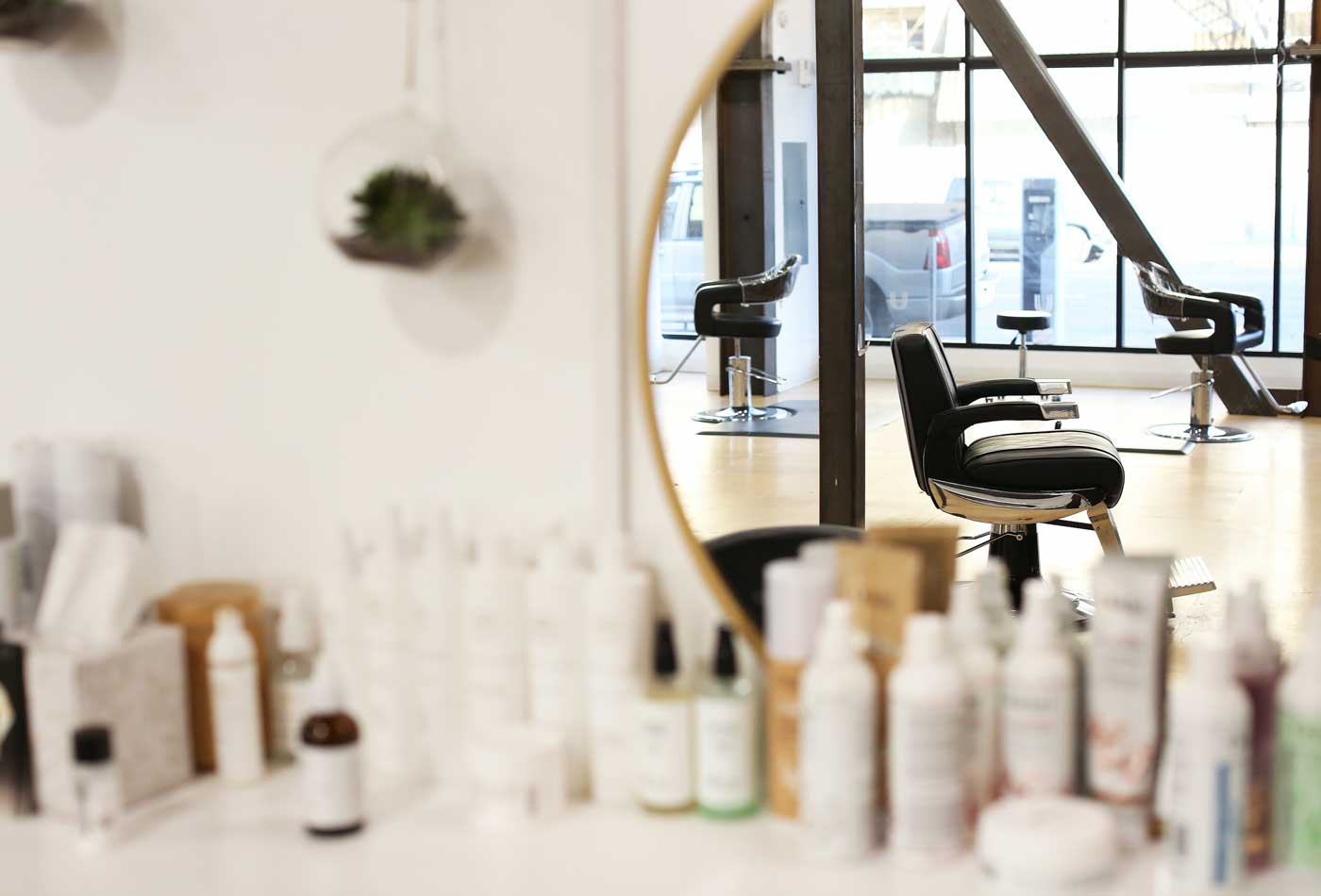
A Profitable Business
There is no doubt that a great salon can make its owner a good living. The beauty industry in the UK has a current revenue of around £12.28 billion, and the market is set to grow 2.17% annually. Within this industry, the hair and beauty sector turned over £5.5 billion in 2019-2020.
As the country navigates the current turbulent financial period, salon owners need to be sure they’re meeting the need for affordable treatments that will make people feel great during a period of uncertainty. By using deals and discounts, there is still the potential to keep the salon busy and profitable.
Can I Open a Salon?
If you’re asking if opening a beauty salon is right for you, there are a few key points to consider. Although you don’t need specific qualifications to open a salon, you’ll want to ensure your team of therapists all hold the relevant diplomas and training in line with current industry standards. To fully insure your services, your insurer will need sight of these qualifications, and your customers have been spoilt for choice over the past couple of decades regarding highly trained therapists.
Your best chance of success relies on your head for business, ideally a good working knowledge of the industry, and an experienced and expertly trained team.
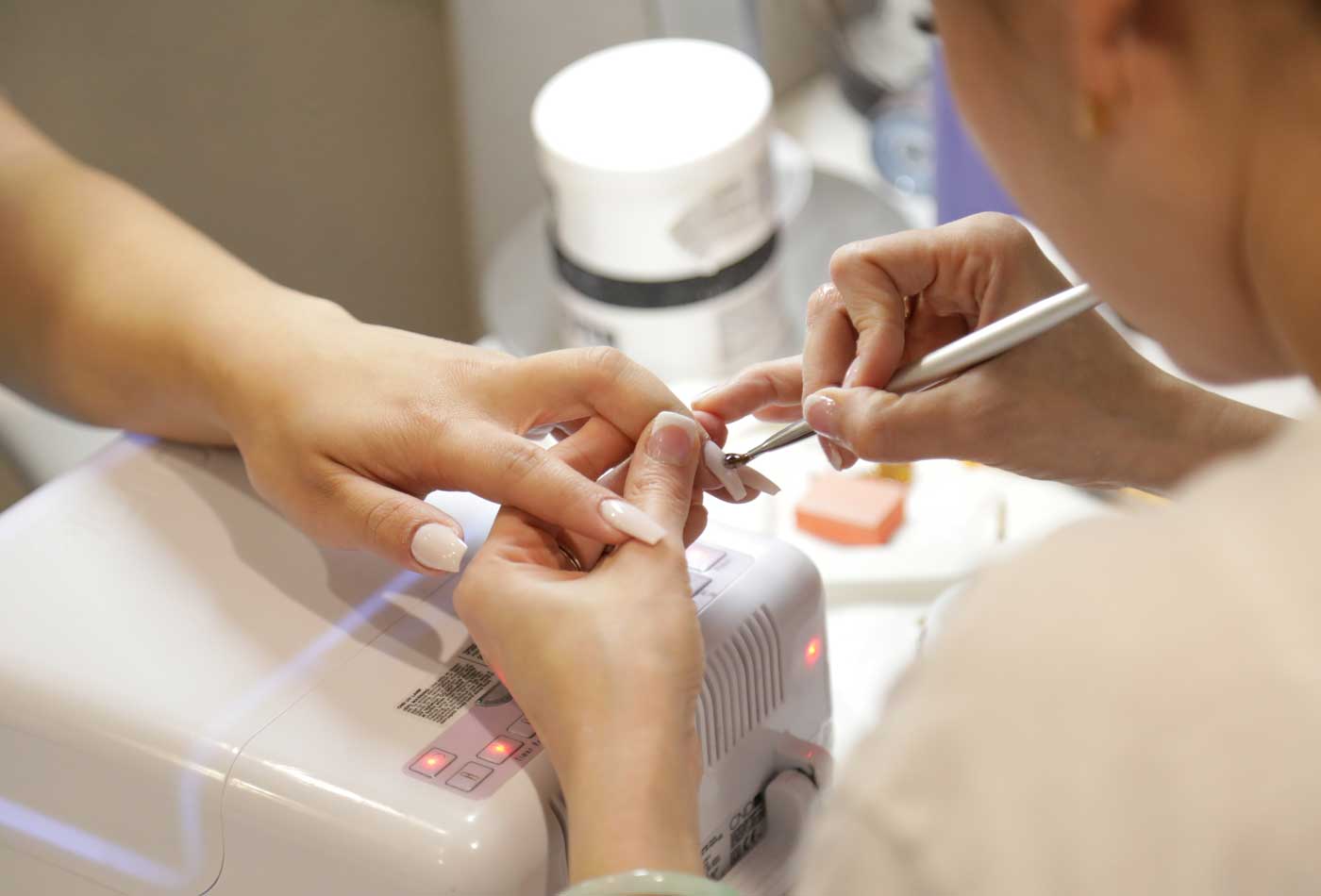
Setting Up a Salon – Our Comprehensive Opening a Salon Checklist
There’s a lot to think about when starting a salon, so turn to our handy opening a salon checklist to walk yourself through the most important steps. One really important part of the process is creating a business plan. You can find an excellent template for one here, and you can use the following information to help you compile it.
Choose the Style of Salon
Most people who want to set up a salon do so because they’ve worked as a therapist or manager in the industry. If you’re trained as a hairdresser, it makes sense to open a hairdressing salon, and likewise, if you’re a beautician, you’ll have the best skillset for starting a beauty salon.
However, there is plenty of scope when opening a salon, and multi-therapy salons have become the norm. Take your time to decide whether you’d like your salon to feature a range of different therapies or services or if you want your salon to offer one key service, such as:
- Hairdressing
- Nails
- Beauty treatments, including waxing and tanning
- Non-surgical cosmetic procedures
- Complementary/alternative therapies
There are great profits to be made with each service, but you should consider what type of equipment and tools you can afford when you’re first setting up when choosing what type of services you could offer.
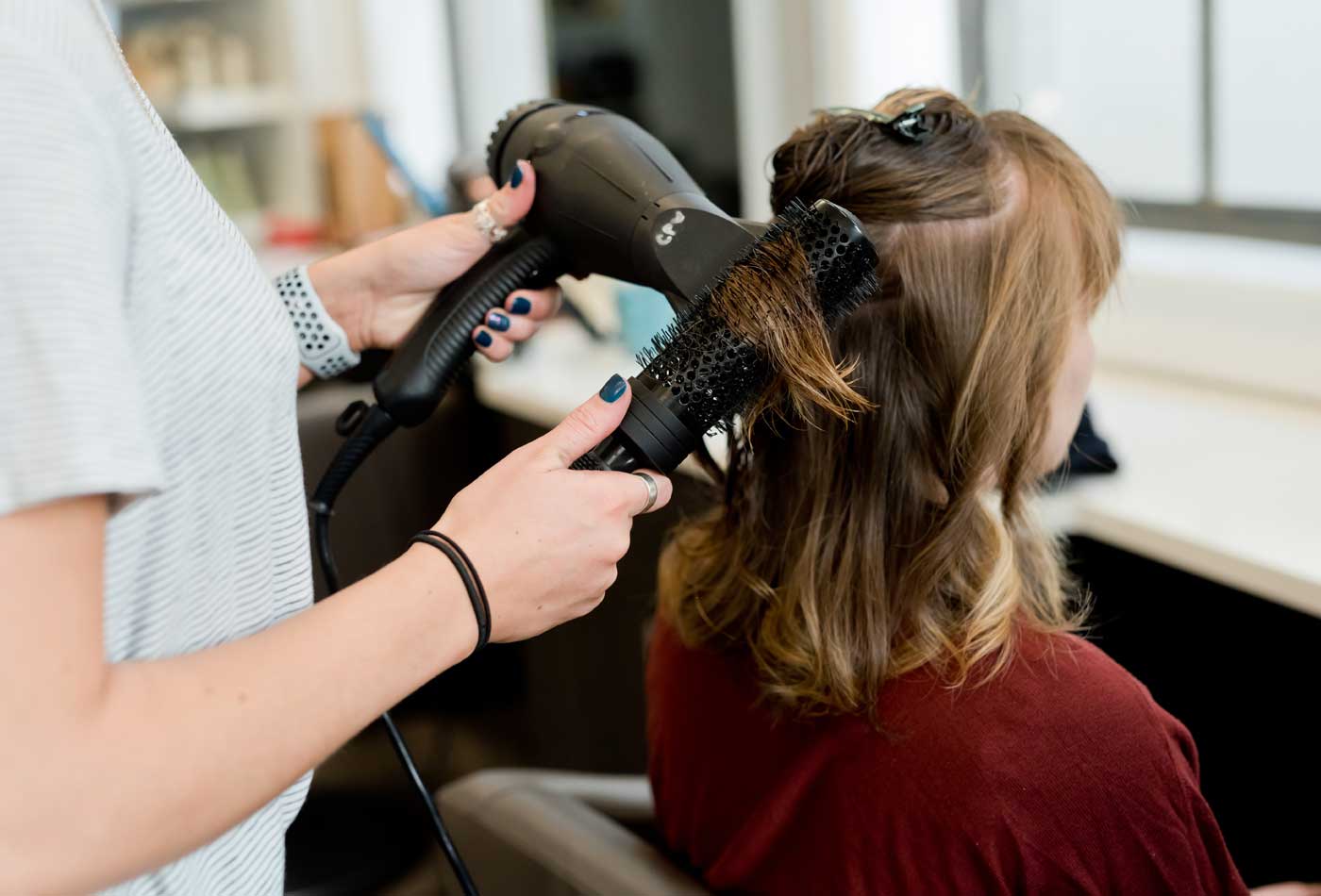
Rules and Regulations
When starting any business, you must learn the rules and regulations you’ll need to adhere to. When you’re opening a salon, you’ll need to register as self-employed with HMRC, deciding whether you want to class yourself as:
- A sole trader
- A limited company
- A limited liability partnership
- A partnership
While you’re logged on to the government website, registering online as self-employed, pop on to their license finder to discover whether you’ll need a license in your area for your chosen style of salon.
Contact your local council to inform them of your salon opening plan. They’ll be able to provide you with all the information you need to ensure you abide by their specific set of health and safety rules.
It’s a great idea to have at least one therapist, beautician, or hairdresser in your new business who belongs to a professional governing body, as you’ll then be able to consider the health and safety standards set down by the industry as best practice too.
These rules will cover factors such as a safe working environment, proper ventilation, infection control, and sufficient staff training in equipment and chemical-based products used on clients. Your council will advise you on the benefits of holding the relevant insurance to protect your business and the members of the public who frequent it.
Working Out Your Budget
It’s far better to finalise your budget at the start rather than total the figures as you work through each stage. Once you’ve set your budget, you can choose your premises, decorating, and equipment based on how much money you have. Fail to do so, and it is very easy for costs to start spiralling. Naturally, you want to create the most picture-perfect salon – but cut your cloth according to your means. You can always make upgrades and improvements once those profits start rolling in.
You can expect to spend between £3000 and £35,000 setting up a salon. You have numerous options when it comes to funding your launch:
- Personal savings
- Business grants
- Business loan
- Crowdfunding
- Angel investor(s)
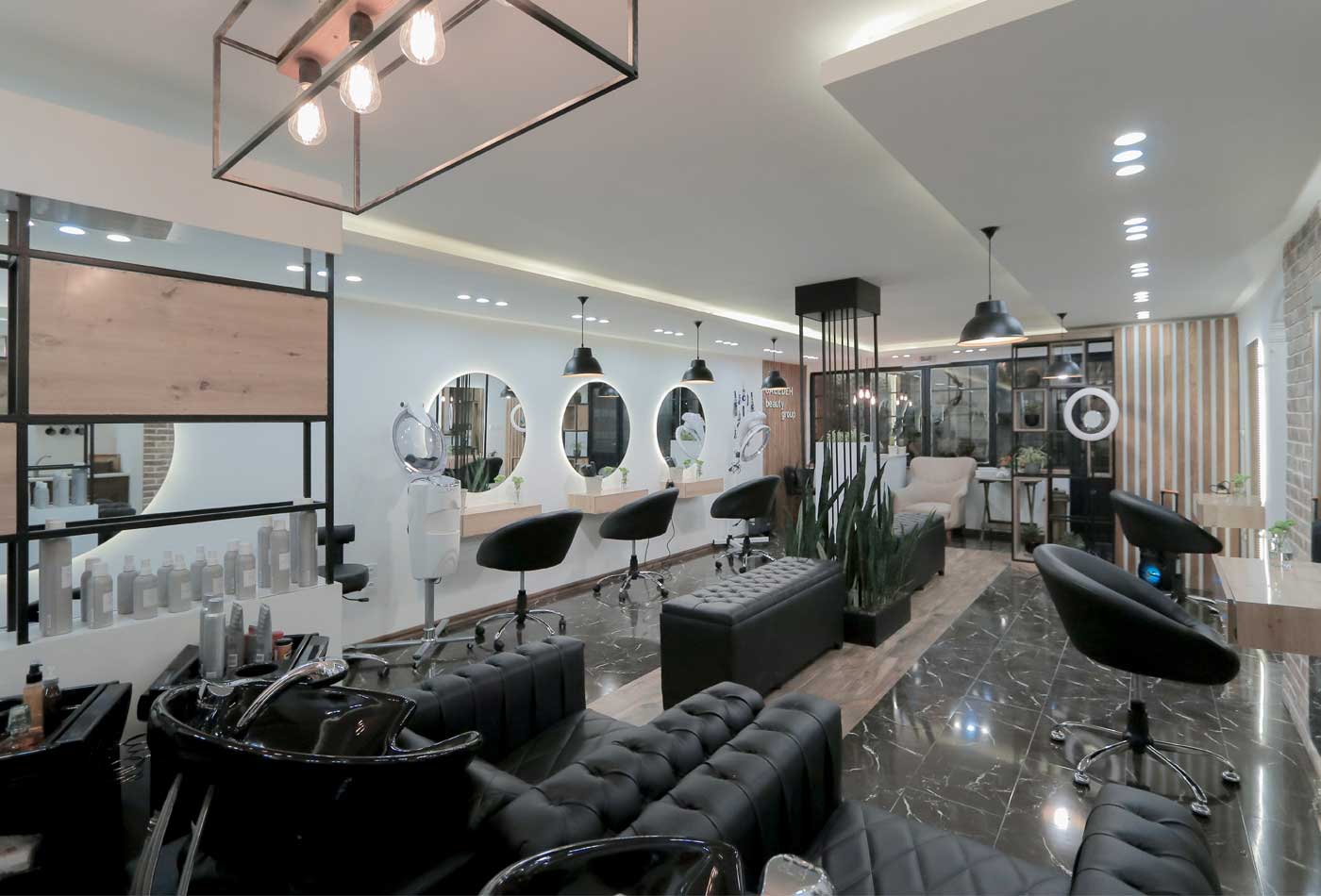
Choosing your Premises
There are two options for those wishing to offer salon services that don’t involve renting or buying business premises. Those are working from home and becoming a mobile hairdresser, beautician, or therapist. These two options will greatly reduce your budget but limit your initial potential for profits and growth.
If you choose to work from home, you’ll need to let your home insurer know, as they may need to change your policy. If you choose to go mobile, performing your services in your client’s home, you’ll still need to consider that insurance since claims can be made against you for incidents in private homes.
If you want your own business premises, depending upon the services you want to offer, you might have some rather specific needs that you’ll need the premises to provide, including:
- Sufficient plumbing for the likes of sinks in a hairdressing salon
- Enough private rooms for therapies such as massage and waxing
- Space for a reception and waiting area
- Good natural light for working on the skin
- Plenty of ventilation
You’ll also need to ensure the location gets plenty of footfall and doesn’t sit too close to any competition.
Kitting Out the Salon
The equipment you need will vary depending on the type of salon you’re opening. Each salon will need a reception desk and attractive and comfortable furniture for the waiting area. A hairdressing salon might also need:
- Specialist sinks and hair-washing attachments
- Styling chairs
- Mirrors
- Driers
- Styling tools
- Storage trollies and shelving
- Colours, shampoos, conditioners, and treatments
- Towels
Meanwhile, a multi-therapy or beauty salon may also need:
- Massage/treatment beds
- Electric massage and skincare equipment
- Skincare products, including those for non-surgical procedures
- Cosmetics
- Carrier oils and essential oils
- Wax and other hair removal products, including laser tools and epilators
- Nail polishes and acrylics
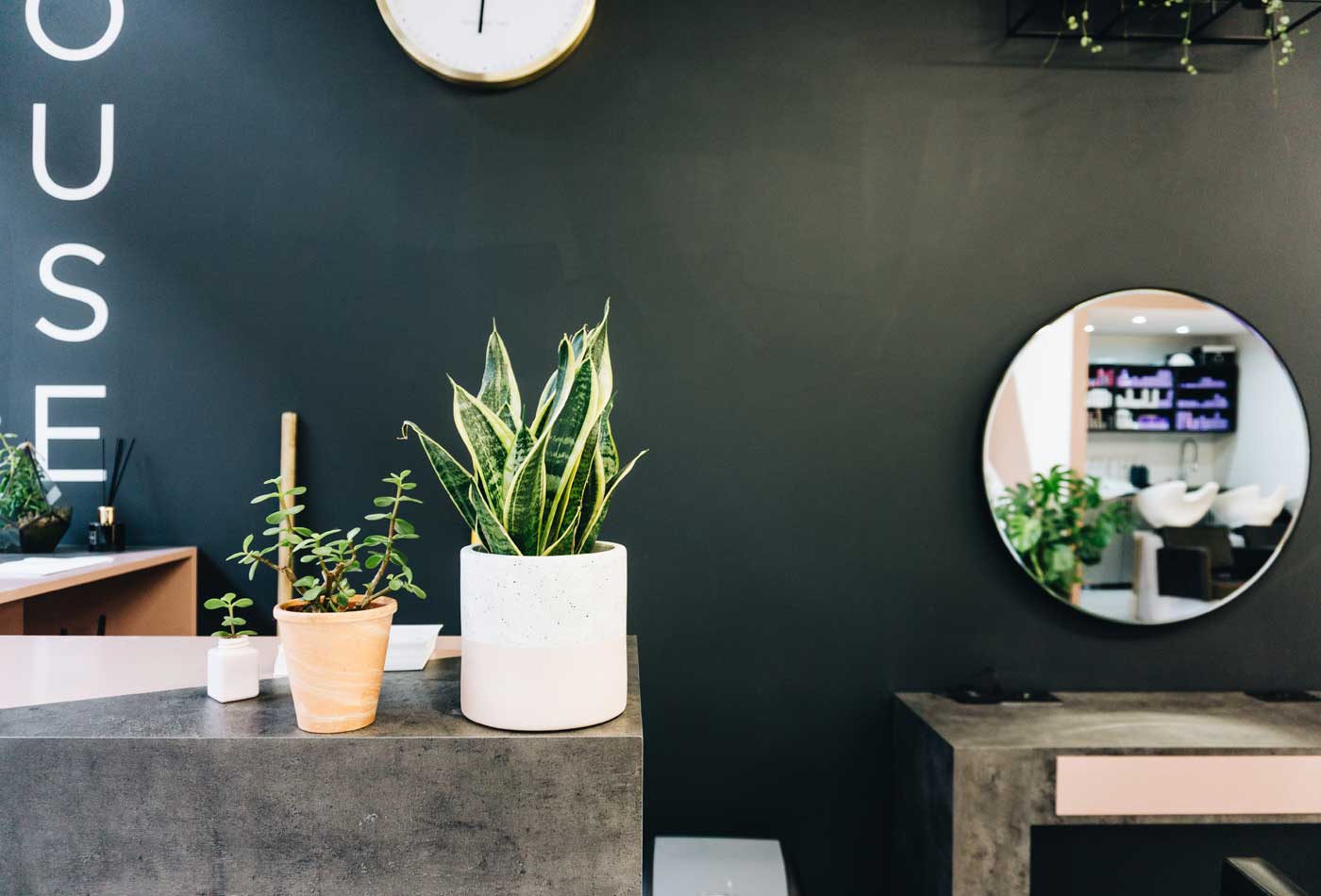
Naming and Marketing Your Business
Coming up with a name for your salon can be great fun. Although hairdressing salons have sometimes traditionally been named using a play on words, the vibe that the modern salon owner wants to create is a little different. Opt for something classy and aspirational – and always check that no other local businesses share the same name.
Although you might not want a logo, the font and design of your salon name can be used across your branding. If you need to be more creative, consider hiring a professional to get this graphic just right, as it will set the tone of your business.
Give yourself plenty of time to create your mobile responsive website and social media accounts, with the latter being so helpful for free advertising because clients can tag your business in their socials.
Set up your social media accounts early in the process, and you can document your salon decorating and ask for advice on interior design choices and treatments. Engage with your audience as soon as possible to encourage a good client base when you open.
Insuring Your Salon
As soon as you start investing your time in starting a salon, you can consider taking out insurance. You’ll also want to make sure you can deal with any claims made against your business once you start serving the public and hiring staff.
As a salon owner, the following covers may be relevant:
Public liability – a cover you can use should a member of the public claim that they were injured or their property damaged as a result of your business. A typical example would be a client slipping on a wet floor in the salon and injuring themselves.
Treatment liability – this type of insurance deals specifically with injury or property damage caused by a service you provide or advice you gave. It’s important to note that public liability will not cover your treatments or services. You might need to use this if your client receives an injury during a massage, a burn during a hairstyle, or reacts to the skin treatment you prepared.
Professional liability – to deal with claims of negligence by your business.
Employers’ liability – which you must hold if you employ staff. This will be used should an employee claim they became ill or injured as a result of working in your salon.
Buildings and contents – to protect your premises and all the equipment, fixtures, and fittings that you have invested in from theft and damage.
If you’re opening a beauty salon and want to know how you can use a great insurance policy to protect your finances, get in touch with the friendly experts at Park Insurance. We’ve been working with British entrepreneurs for decades, and we’ll be delighted to use our knowledge to help keep your new salon safe – whatever happens.
